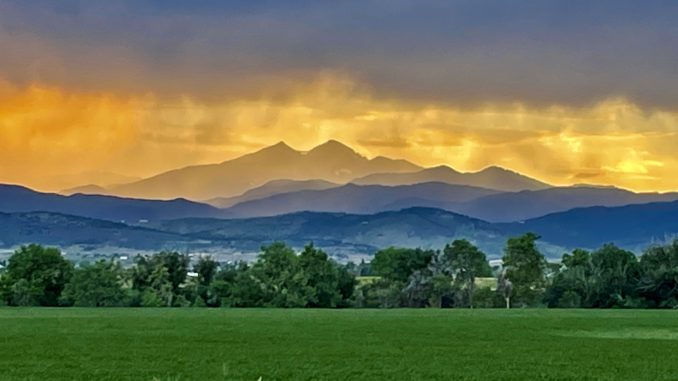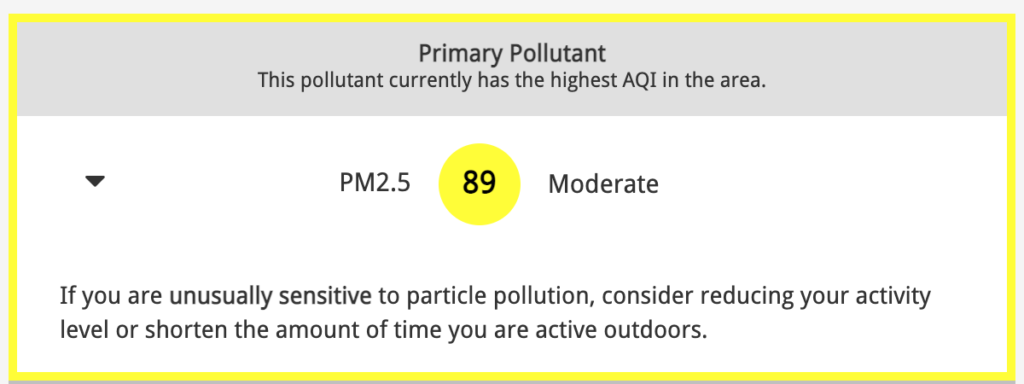

Air quality along the front range has been moderate to poor in recent weeks.
“I just can’t go outside, I’m coughing constantly,” said Courtney, a resident in Fort Collins. “Since the fires last year I just haven’t been able to breathe the same.”
The City of Fort Collins monitors air pollution for its residents and posts updates at fcgov.com. Other websites like Accuweather.com and Airnow.gov are continuously updating charts to show measurements in air quality, with custom searches based on location.
According to airnow.gov, a United States Environmental Protection Agency Initiative, the Ozone measurements have recently been unhealthy for sensitive groups along the front range. The site advises adjustments to your schedule throughout the day.
Have flexibility in your schedule?
Even if the forecast is Orange (unhealthy for sensitive groups), there may be times during the day when air quality is OK for outdoor activities. Ozone is often lower in the morning. Check current air quality to see if now is a good time for you to be active outdoors.
Medical professionals encourage people with COPD and other respiratory issues to educate themselves about how to stay healthy and breathe easier during times of poor air quality.
- Both wildfire smoke exposure and COVID-19 can cause dry cough, sore throat, and difficulty breathing.
- Learn about symptoms of COVID-19. Symptoms like fever or chills, muscle or body aches, and diarrhea are not related to smoke exposure. If you have any of these symptoms, the CDC COVID-19 Self-Checker can help you determine whether you need further assessment or testing for COVID-19. If you have questions after using the CDC COVID-19 Self-Checker, contact a healthcare provider.
- If you have severe symptoms, like difficulty breathing or chest pain, immediately call 911 or the nearest emergency facility.
- For more information on COVID symptoms or to take the self-checker assessment visit: https://www.cdc.gov/coronavirus/2019-ncov/index.html
- Watch for local news or health warnings about smoke. Check air quality reports anywhere in the US by visiting airnow.gov. A lot of different factors impact air quality and not just proximity to the fire.
- Seek shelter elsewhere if you do not have an air conditioner, and it is too warm to stay inside with the windows closed.
- Use a freestanding indoor air filter with particle removal and follow the manufacturer’s instructions on filter replacement and device placement.
- Do not add to indoor pollution. Including using anything that burns, such as candles and fireplaces; vacuuming or sweeping stirs up particles; and smoking tobacco, or other products, indoors.
- Follow your doctor’s advice about medicines and your respiratory management plan if you have asthma or another lung disease or cardiovascular disease. Call your doctor if your symptoms worsen.
Fort Collins offers the following programs and information to improve outdoor air quality in our area:
- Wildfire Smoke
- Vehicle Idling
- Outdoor Burning
The city offers resources and information through its website at fcgov.com/airquality.
Support Northern Colorado Journalism
Show your support for North Forty News by helping us produce more content. It's a kind and simple gesture that will help us continue to bring more content to you.
BONUS - Donors get a link in their receipt to sign up for our once-per-week instant text messaging alert. Get your e-copy of North Forty News the moment it is released!
Click to Donate
